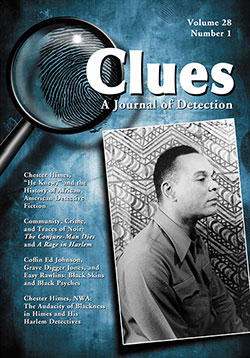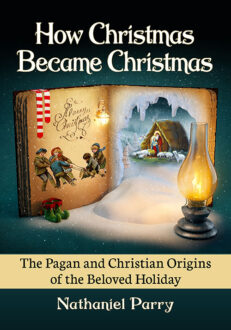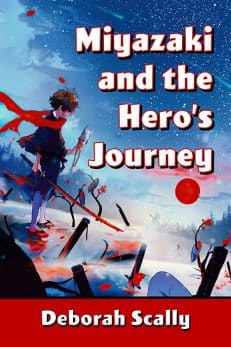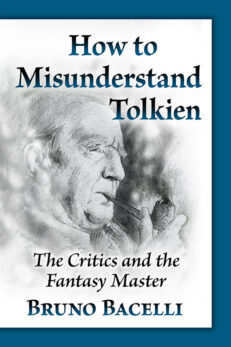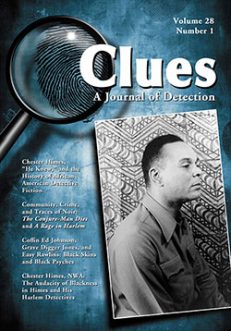Clues: A Journal of Detection, Vol. 28, No. 1 (Spring 2010)
Print Back Issue$30.00
In stock
About the Book
BACK ISSUE
This is a single back issue only. To order a current subscription, or for more information, please visit the journal’s web page at CluesJournal.com. Back issues from earlier volumes of Clues are available for order subject to availability. Also, single issues of the current volume may be ordered one at a time. Individuals may order back issues directly from our online catalog, and the charge for individuals is $30 (excluding postage). Issues from Volume 33 to the present are also available in ebook format on Kindle, Nook and Google Play.
The charge for single issues for institutions is $75 per issue (excluding postage). If your institution requires a back issue, please contact us to order at the appropriate rate.
About the Author(s)
Bibliographic Details
Executive Editor Margaret Kinsman
Managing Editor Elizabeth Foxwell
Format: softcover (7 x 10), back issue
Pages: 114
Bibliographic Info:
Copyright Date: 2010
ISSN 0742-4248
Imprint: McFarland
Table of Contents
Theme Issue : Chester Himes and His Legacy
Guest Editor: Norlisha F. Crawford
Introduction
NORLISHA F. CRAWFORD 5
Chester Himes, “He Knew,” and the History of African American Detective Fiction
JOHN CULLEN GRUESSER 15
The author discusses “He Knew,” Chester Himes’s first story featuring African American detectives, and places it in context with his other work and that of other African American writers of detective fiction.
He Knew
CHESTER HIMES 22
Himes’s first story with African American detectives was originally published in 1933 and has never been reprinted until this issue of Clues.
Community, Crime, and Traces of Noir: The Conjure-Man Dies and A Rage in Harlem
FRANKIE Y. BAILEY 26
The author examines the depiction of crime and community in the first novels of mystery writers Rudolph Fisher and Chester Himes. Set in the real and symbolic community of Harlem, Fisher’s The Conjure-Man Dies (1932) and Himes’s A Rage in Harlem (1957) have in common elements of Gothicism and noir.
“There was nothing to stop the colored people from walking across the street”: Urban Renewal and the Reinvention of American Detective Literature in Chester Himes’s Run Man Run
JUSTIN GIFFORD 38
In examining Chester Himes’s long-ignored Run Man Run (1959), the author argues for a re-evaluation of Himes as an innovator of the detective novel. Exploring how Run Man Run engages postwar urban planning policies, the author shows how Himes was the first of many twentieth-century black novelists who mobilized the crime novel to expose the racial ideologies underwriting “urban renewal.”
Coffin Ed Johnson, Grave Digger Jones, and Easy Rawlins: Black Skins and Black Psyches
AGUSTÍN REYES-TORRES 51
Based on hard-boiled conventions, Chester Himes and Walter Mosley give rise to African American detective heroes that establish their blackness as their modus operandi. Coffin Ed Johnson, Grave Digger Jones, and Easy Rawlins contravene the biased stereotypes of black identity, denounce the racism of American society, and think and act using their blackness as their main weapon.
Chester Himes, NWA: The Audacity of Blackness in Himes and His Harlem Detectives
STEPHEN F. SOITOS 61
Chester Himes’s Coffin Ed Johnson and Grave Digger Jones are unique in the history of African American detective fiction—protagonists in a predominately black environment that diverges from typical crime novels of the period with white characters in nonblack milieus. The author explores the connection between these two detectives and Himes’s use of the Bad Black Man persona, a folklore trope of African American vernacular culture.
ESSAYS
“Canst thou draw out Leviathan with a hook?”: Akunin Colludes and Collides with Collins and Christie
MARCIA A. MORRIS 69
The author identifies points of convergence and divergence among Boris Akunin’s Murder on the Leviathan and novels by Agatha Christie (The Mystery of the Blue Train, Murder on the Orient Express) and Wilkie Collins (The Moonstone). The author argues for a reading of Leviathan as a fusion of classical mystery plots and devices, postmodernist aesthetics, and Russian history.
Anne Perry: World War I as Period Mystery
BARBARA KORTE 79
The essay investigates how Anne Perry’s World War I series engages in today’s cultural perception of this war. The author argues that these mysteries are for a period that finds itself in new wars and hence takes a specific interest in the first modern war of global dimensions and its ethical implications.
“Be a white man”: Majoritarian Perspectives and Their Subversion in James
Ellroy’s Dudley Smith Trilogy
JON CLAY 90
James Ellroy’s Dudley Smith trilogy features Deleuzian majoritarian perspectives—those of the dominant social groups—but subverts them simultaneously. The protagonists’ language is significantly infected by their opponents’ minoritarian discourses. Also subversive is the villainous Smith—an uninfected, almost parodic presentation of the majoritarian. Resistance to him suggests that opposition to oppression emerges from unlikely sources.
John le Carré’s The Secret Pilgrim and the End of the Cold War
JONATHAN GOODWIN 102
The Secret Pilgrim was John le Carré’s first novel to consider the end of the cold war. The author describes how the novel’s embedded structure reveals le Carré’s political perspective more clearly than previous works and argues that this narrative frame is an adaptation to the sudden collapse of le Carré’s traditional subject matter.
BOOK REVIEW
Jean Murley. The Rise of True Crime: 20th-Century Murder and American Popular Culture.
RITA RIPPETOE 111
Author Guidelines are on page 112
Book Reviews & Awards
- “Clues is a must-have for readers and writers of crime fiction. Scholarly, thought-provoking, wide-ranging in its topics, Clues covers the crime and thriller map.”—Sara Paretsky
- “A. Conan Doyle, notoriously resentful of Sherlock Holmes’s success, liked to scorn ‘police romances’ as less significant and worthy of his talents than his other literary work. If he could have read Clues, the thinking mystery reader’s journal, he would surely have felt differently—and learned much he never realized himself about even his own landmark contribution to the genre, from which so much else by others has flowed.”—Jon Lellenberg, U.S. agent for the Arthur Conan Doyle estate
- “I love reading Clues. Every issue provides thought-provoking, well-researched articles. The variety and scope of the material found in Clues makes an unparalleled, ongoing contribution to our understanding of the role of crime fiction in our culture, and the genre’s reflection of its time and society.”—Jan Burke, Edgar-winning author of The Messenger (2009)
- “Clues is an important journal. It carries the torch of tradition that is the backbone of detective fiction. It goes below the surface and gets to the heart of what makes the genre so fascinating and valid today”—Michael Connelly, author of the Harry Bosch novels, including The Overlook (2007)
- “for erudite and fascinating truths about mysteries, follow the clues to Clues, the scholarly journal that is an essential resource for every serious student of the mystery”—Carolyn Hart, author of Death Walked In (2008)
- “with scholarship ranging from Poe to Peters, nothing beats Clues”—Joan Hess, author of Mummy Dearest (2008).

